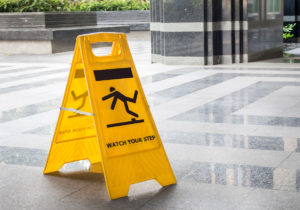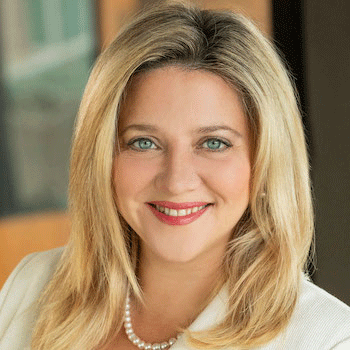No Fees
Unless We Win
Millions Recovered!
Seattle Premises Liability Attorneys

Seattle Premises Liability Attorneys
We will get you through this.
When someone else holds their property open to you, they may be legally responsible for any injuries you suffer. While the property owner does not act as your insurance company, they have certain legal duties to you to act reasonably.
To be clear, while they are not in the accident prevention business, they must create conditions that promote safety on their property. If you have suffered an injury on someone else’s property, you should contact an experienced premises liability attorney to handle your legal case.
The Seattle premises liability lawyers at Boohoff Law can fight for you to receive full compensation for your premises liability injuries. Your first step is to call us to schedule your free initial consultation to discuss your case. Then, our Seattle personal injury lawyers can help you compile the evidence that you need to secure financial compensation when someone else was responsible for your injuries.
Available 24/7
Our specialists are here to listen and help for free, no strings attached.
877-999-9999
for a free consultation
All People Who Own or Control Property Owe You a Duty of Care
Premises liability cases encompass any situation in which one gets hurt on the property of another. It does not matter whether you were in an accident on your own or someone else directly caused the injury. The property owner can be legally responsible if they do not uphold their own duty of care. So long as you have a right to be on the property, the owner owes you a duty of care.
All people who own property or businesses open to the public must act with reasonable care. The exact contours of their duty depend on the circumstances. The general rule is that a property owner must act as a reasonable property owner should under the circumstances.
The law does not expect a property owner to be hyper-vigilant and absolutely perfect. After all, nobody spends 100 percent of their time inspecting their property and fixing every single crack the second that they see it. However, there are things that a property owner can do (or not do) that depart from the duty of care.
Identifying who should be liable for a fall or similar accident can be complex, but our Seattle premises liability attorneys are always up to the challenge. Discuss a possible case with Boohoff Law if you suffered injuries on another’s property.
Seattle Legal Services
- Seattle Personal Injury
- Seattle Car Accident
- Seattle Bus Accident
- Seattle Truck Accident
- Seattle Bicycle Accident
- Seattle Burn Injury
- Seattle Motorcycle Accident
- Seattle Drunk Driving
- Seattle Nursing Home Abuse
- Seattle Slip and Fall Accidents
- Seattle Premises Liability
- Seattle Wrongful Death
- Seattle Dangerous Drugs
- Seattle Dog Bite
- Seattle Pedestrian Accident
- Seattle Medical Malpractice
- Seattle Construction Accident
- Seattle Workers’ Compensation
Find out what your case is worth.
Examples of Premises Liability Cases
Premises liability cases encompass a wide variety of different types of incidents and accidents. There are many types of cases under one roof, so to speak, and Boohoff Law can tackle them all.
Here are some of the scenarios that might lead to premises liability actions:
- Slip and fall cases. These are the most common type of premises liability actions, as falls happen all the time. However, premises liability cases are about much more than slip and falls.
- Negligent security. You may experience an attack while you are on someone else’s property. If the property owner did not do enough to protect you in the face of known risks, you can hold them liable for your injuries.
- Elevator and escalator accidents. Property owners must take steps to inspect and maintain elevators and escalators, and they can be legally responsible for any accidents.
- Hotel accidents. Guests can suffer injuries in many hotel accidents, including physical attacks and falling in their hotel room and hallways due to dangerous conditions. They may sustain harm from bedbugs in the bed of a dirty hotel, which is a type of premises liability claim.
- Defective stairwells. Building owners have a legal obligation to properly maintain stairwells, ensuring that the handrails are secure and they are well-lit.
- Swimming pool accidents. Children are particularly vulnerable to swimming pool accidents that can occur because the pool is either poorly maintained or not adequately cordoned off from children.
- Dog bites. A pet may attacked you on someone else’s property. Postal workers and delivery employees often suffer injuries from dogs protecting their owners or homes.
Who You Can Sue in a Premises Liability Case
 Here are some potential defendants in your premises liability case:
Here are some potential defendants in your premises liability case:
- Shopping centers
- Sorting team owners
- Universities and educational institutions
- Restaurant owners
- Municipal governments (the government has a duty to maintain the sidewalks in reasonable condition, and they can be liable if you trip and fall on defective pavement)
- Hotel owners
- Retail stores
- Amusement parks
Whether you have a claim against a small business, a condo complex, or a large corporation, you want a premises liability lawyer from Boohoff Law on your side.
How to Win a Premises Liability Case
Although the property owner does not need to guarantee your safety when you set foot on their property, they must take reasonable steps to keep you safe. If they do not, you can sue them for financial compensation.
In every case, you must prove that the property owner was negligent to win your case. You need to gather evidence of what happened to compare it to what a reasonable property owner should have done under the circumstances in the face of the business’s efforts to make your life more difficult.
Often, premises liability cases depend on the evidence you can get during discovery, unless you have significant proof right off the bat that you can use in an insurance claim.
Negligence in a Product Liability Case
What may be negligence depends on the circumstances. All the tests depend on what is considered reasonable under the circumstances. For example, in a slip and fall case, the property owner must remedy or warn the public about a dangerous condition on their property within a reasonable amount of time after they knew or should have known about it. The law recognizes that accidents can and do happen, and it is only not an accident when someone has failed to live up to their duty of care.
Another example of negligence in a premises liability case is when you or a loved one is the victim of a violent attack on someone else’s property. In this case, the property owner’s duty of care is to take reasonable measures for property visitors once they know that there is a potential danger. For instance, they may hire additional security guards if there has already been an attack in the vicinity.
Certain premises cases are more challenging than others, but in all situations, you want to seek help from Boohoff Law to protect your legal rights.
What to Do After You Suffer Injuries in a Premises Liability Case
After you have suffered an injury in a premises liability accident, there are two primary things you should do. The first thing is to get the medical help you need, giving you the documentation necessary to file a claim and putting you on the road to the maximum possible recovery.
If you suffered an injury in an accident and waited too long to get medical care, the insurance company may dispute the connection between your health condition and your accident. For example, they may claim that the back or neck injury you suffered in a slip and fall accident happened some other way.
In addition, you will also need an experienced attorney to handle your premises liability case. In any potential claim, you are dealing with a homeowners’ or business liability insurance company. No matter which insurance company is involved, they will all take care of business using the same principle; they will aim to save money at your expense every single time.
If you try to approach the insurance company on your own without an attorney, you will cost yourself money. Not only are you increasing the chances that your claim gets denied entirely, but you might also get far less money in a settlement offer.
Seattle Premises Liability Attorneys
Boohoff Law Seattle Office
920 5th Ave, Suite 1530
Seattle, WA 98104
Free Consultation
We Are Here For You 24/7
Why You Need Boohoff Law for Your Premises Liability Case

You may not even know how much your case is worth. You may think that a broken leg is as simple as the insurance company paying your medical bills, but there are many more elements of your damages. You can receive compensation for lost wages and your pain and suffering, and they may be worth far more money than you think. The insurance company has the facts and figures that give you exact knowledge of the value of your claim. Without an attorney, you will be at a significant information disadvantage to the insurance company in any claim.
There are many other reasons why you need an experienced attorney from Boohoff Law for a premises liability case, including:
- You cannot easily determine who owns or controls the property because ownership can involve a network of limited liability companies.
- Insurance companies often take a very skeptical view of slip and fall cases, denying them unless they have concrete evidence of their policyholder’s liability.
- There may be multiple defendants in each case, and your lawyer can help you determine each party who was potentially responsible.
- Depending on what happened, premises liability cases can be worth a lot of money, and a lawyer can help you maximize your financial recovery.
- Since your actions are also relevant in determining who caused the accident, the insurance company may try to blame you for the accident. They may claim that you ignored an open and obvious danger or assumed the risk of suffering injuries.
The insurance company is not out to be fair to you. They want to protect themselves and their own financial interests. They aim to make things as difficult as possible for you. They may deny your claim entirely or try to settle with you for less than you deserve. Your attorney is here to protect you from that conduct.
However, if the law is on your side, you may be entitled to substantial financial compensation in a premises liability case. In many instances, you are dealing with a corporate defendant who has very deep pockets and can pay for all the damages they have caused you. If a corporate employee caused your injuries, the employer is also liable for the worker’s actions. High-stakes cases require tough representation from an experienced attorney who knows how to go toe-to-toe with big business and not back down.
Consult Our Seattle Premises Liability Lawyers Today
When contacting an attorney, timing is everything. When dealing with a sophisticated business and its insurance company, the parties do what it takes to avoid liability. Their goal is to protect themselves above all else. If you wait too long to hire a lawyer, it can be too late. You cannot trust a business to do the right thing. Instead, you must vigorously fight for your legal right to financial compensation after you have suffered an injury in an accident.
Contact us at Boohoff Law’s Seattle offices as soon as possible at (877) 999-9999 for your free case evaluation. We are ready to stand up for you.
Client Testimonial
“Everyone here is so helpful. They jumped through every hoop necessary to get me the settlement I rightfully deserved. Tracey and Maria are super sweet. They made me feel right at home. I absolutely recommend Boohooff Law and will use them again in the future if I am ever in a similar situation. Thank you all at Boohooff who helped me with my case. 10/10 stars hands down!” – Brandy K.
Boohoff Law P.A.
Seattle Location
920 5th Ave, Suite 1530
Seattle, WA 98104
(877) 999-9999
Recovery is personal.
We’re here for you.
We’re close by. And if you can’t make it to us, we’ll meet you where you need us, at home or in the hospital.
You're better off with Boohoff.











The information on this website is for general information purposes only. Nothing on this site should be taken as legal advice for any individual case or situation. This information is not intended to create, and receipt or viewing does not constitute, an attorney-client relationship.
available 24/7
(877) 999-9999
